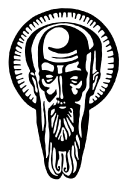Useful information for prospective applicants to the Bachelor’s programme in Scandinavian Studies
The Bachelor’s degree programme in Scandinavian Studies comprises 4 years (8 semesters) and is aimed at people who want to be professionally occupied with the continental Scandinavian languages (Swedish, Norwegian and Danish), as well as the literatures, cultures and societies of the countries in the Nordic region.
In order to successfully complete the training at the programme, prospective students should possess excellent functional literacy and general cultural awareness, as well as good preparation from the secondary course of education.
The disciplines within the Scandinavian Studies programme offer a broad scope of knowledge and aim to help students not only to acquire practical language skills, but also to get very good theoretical training in linguistics, literary and cultural studies. For this purpose, along with the practical training in Scandinavian languages, the curriculum of the programme includes in-depth training in theoretical linguistics, literature, and cultural studies, as well as different specializing disciplines. According to their status, the disciplines are divided into compulsory, elective and optional (for more information – see below). All disciplines include lectures, exercises and seminars, participation in which is mandatory.
Swedish, Danish and Norwegian alternate as main languages in the Bachelor’s degree programme. This means that, for example, during the 2023/2024 academic year, first-year students at the programme will start learning Swedish as their main Scandinavian language, which will remain their main language throughout their studies. In the second semester of the second year, the same students will start studying a second Scandinavian language, they can choose between Norwegian and Danish. For first-year students in the academic year 2024/2025, the main language will be Danish, and the second – Swedish or Norwegian.
The aim of the curriculum of the Scandinavian Studies programme combines disciplines with practical and theoretical orientation, is order to provide students with professional skills and competences that facilitate their professional realization as specialists in Scandinavian languages, Scandinavian linguistics, literature, translation and intercultural communication, cultural studies and cultural history of the Scandinavian countries.
Students who are interested in professional realization as teachers in Scandinavian languages can also choose the optional pedagogical module for acquiring an additional professional qualification “teacher”.
